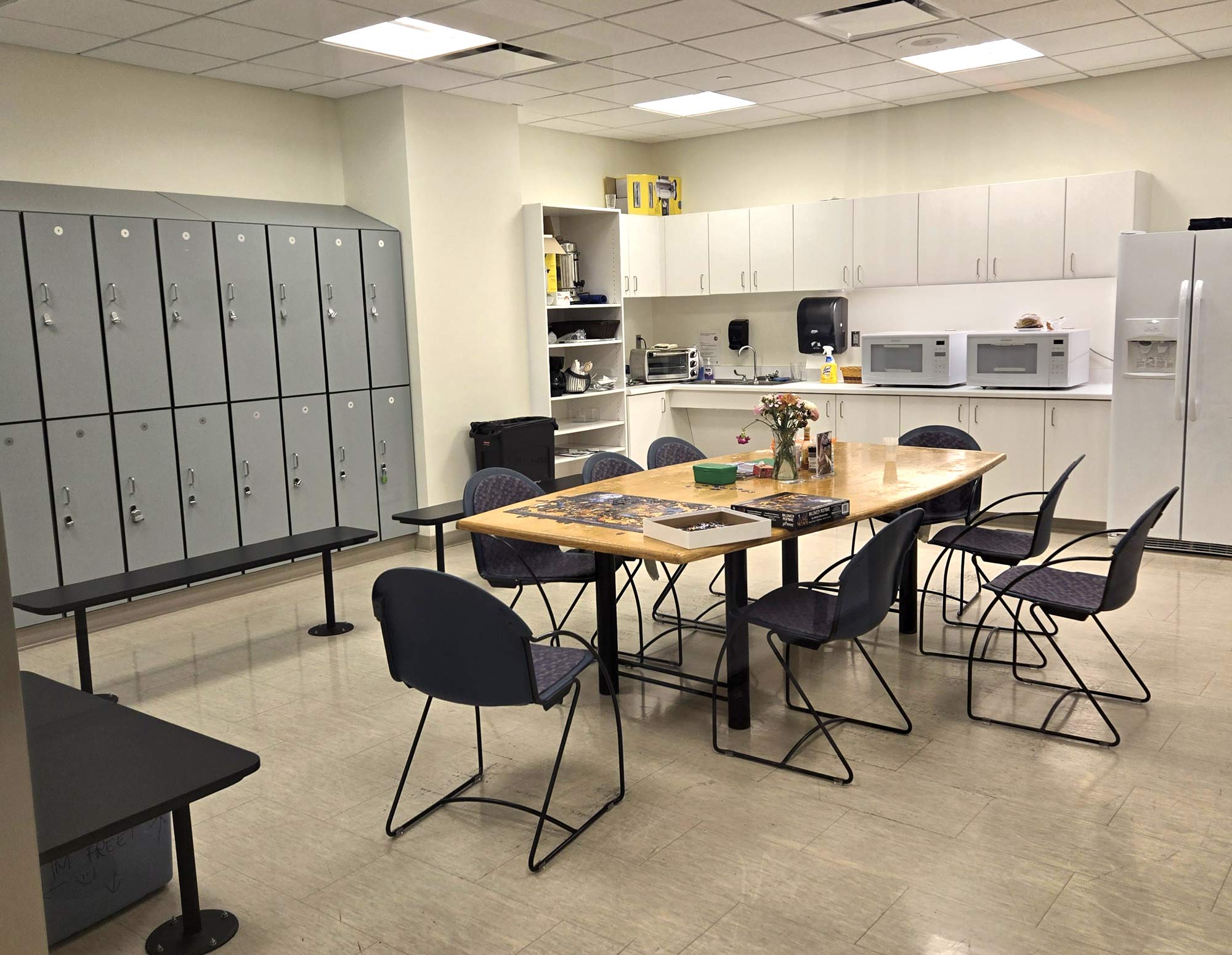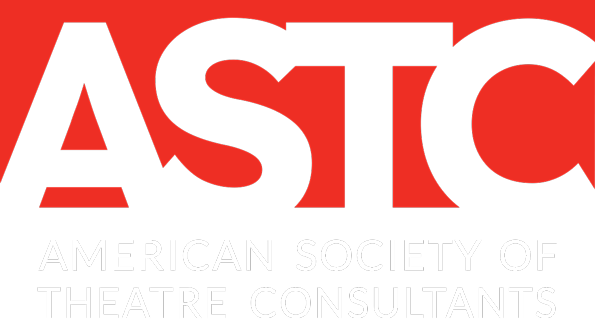Planning for the Crew

A crew room, complete with secured lockers, and kitchen area. Jigsaw puzzle is optional. (Photo by Kimberly Corbett Oates, ASTC).
During planning, most people think about public facing spaces and the backstage areas needed for the performers. Most people know performers need dressing rooms and even a Green Room (even if no one really knows why it’s called that.) But there are others who need to be accommodated backstage when they do their work. That’s the stage crew.
To decide what spaces are needed to support the crew, one must ask who will be using the stage and facilities. The needs of a producing theatre are different from a roadhouse, or a university theatre program, or a community theatre. Knowing who will use the facility and the composition of the backstage crew is important to understand so accommodations may be planned.
Let’s assume we are talking about a roadhouse where there might be some building staff such as a technical director, or a stage manager, and one or two house crew members. We will assume front of house administrative staff are housed elsewhere.
First, and perhaps most importantly, everyone needs a restroom. The crew should not be using public rest rooms or toilets associated with performer dressing rooms or the Green Room. They will need a space near the stage they can use just before the show starts and when they have a break. One or more of the restrooms should be accessible. Perhaps one or two non-gendered restrooms are appropriate. If placed near the stage, there’s no reason a performer can’t use this restroom as well just before or during the show.
With basic human needs covered, what else is important? If temporary stage crew is expected, a break room might be appreciated. If one considers that the cast has a Green Room to gather and lounge while waiting to go on stage, a similar but separate space should be provided for the crew. Size is dependent upon the expectations of the building. Crew members need a place to leave their coats and perhaps a tool bag or other personal effects. Lockers should be considered. A sink, microwave, refrigerator, and coffee maker are good additions to help the long days be a bit more tolerable. The room might be sized for tables and chairs if crew meals are expected. Flexible space may be a good solution, but the crew members always need a place to be. In some cases, shower facilities may be needed for touring staff.
Not having such a place means personal items are left on stage or another found space and are not secured.
Permanent technical staff will need one or more offices and a space for small meetings. The number of offices will depend upon how much staff is expected. Offices should be close to the stage and loading area if possible. If touring shows are expected, one or more empty offices should be available for the company while they are in the building. If permanent staff includes a head electrician and sound engineer, they will appreciate their offices being near their shops and storage areas. Some may even like a corner of their shop to be their office, though that is not always ideal or practical. The key is that staff needs a place to be.
All of these spaces benefit from having show audio and video feeds, as well as intercom. Other infrastructure such as phone and computer connectivity is a must.
A place outdoors to hang out and experience daylight is another perk that can be considered if there is an opportunity. This is important for those who are indoors for long periods of time, often in a dark theatre.
The production staff and stage crew members in these facilities often spend long hours in the building helping to create the magic seen nightly. It makes sense to provide some space for them and their stuff. Don’t forget to plan for the crew!
By Paul Sanow, ASTC
Disclaimer: Any views or opinions expressed in this article are solely those of the author and do not necessarily represent those of the American Society of Theatre Consultants. This article is for general information only and should not be substituted for specific advice from a Theatre Consultant, Code Consultant, or Design Professional, and may not be suitable for all situations nor in all locations.


